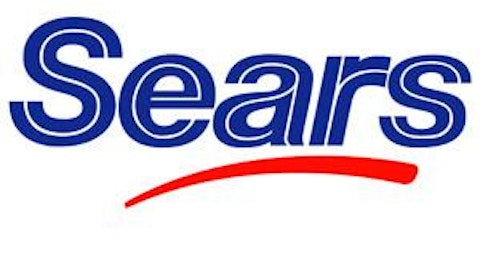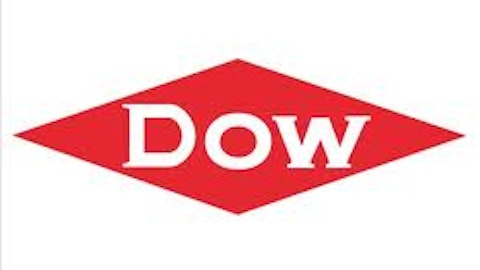Diversified company E I DuPont De Nemours and Co (NYSE:DD) is best known for its performance chemicals and other materials that are used for industrial purposes, but it also provides seeds and a variety of biological chemicals to agriculture and food customers. DuPont’s sales were up 7% in the second quarter compared to a year earlier. Higher sales in agriculture, biosciences, and nutrition made up for small declines in many other segments. This was a lower growth rate than what the company had seen in the first quarter of 2012, but the results for the first half still came out to a 10% gain on the top line. However, higher operating expenses have limited the upside for the company and so earnings were actually down 3% in Q2 versus the same period in 2011. Cash flow from operations also became more negative in the first half of the year as DuPont made a larger contribution to its pension plan.
E I DuPont De Nemours and Co appears to have a stable, low-growth business overall, though its revenue mix has been changing to reflect growth in agriculture-related products. It also pays a dividend yield of 3.5%, and is well capitalized with a $45 billion market cap and an enterprise value of about $57 billion. Its trailing P/E multiple of 13 therefore seems that it might be a bit low, and with analyst consensus for 2013 implying a forward P/E of 11 it certainly looks like the market is being pessimistic about the company’s future.
Clint Carlson’s Carlson Capital owned about 890,000 shares of E I DuPont De Nemours and Co at the end of June, down 16% from what the fund had owned at the beginning of April (find more stocks in Carlson Capital’s portfolio). Our insider trading database has recorded a number of insider sales at the company so far this year (see a history of insider sales at DuPont), though insider sales are often not as strong signals as insider purchases because it is quite reasonable for an executive at a company to want to diversify their wealth away from the same company where they earn their income.
The Dow Chemical Company (NYSE:DOW) is DuPont’s closest peer. Dow pays an even higher dividend yield at 4.6%, making it an interesting choice for income investors. On a forward basis, it is priced about even with DuPont- its forward P/E is also 11- but there are a couple points which concern us. First, this parity in relation to forward earnings estimates comes as a result of higher expected growth at Dow as it trades at 18 times trailing earnings, a substantial premium. Second, its business is in worse condition than DuPont’s: in its most recent quarter Dow’s revenues were down 10% and its earnings were down 31% from the same period a year ago. In terms of value, DuPont seems to be a better buy than this peer.
We can also compare DuPont to smaller chemical companies Eastman Chemical Company (NYSE:EMN), Air Products & Chemicals, Inc. (NYSE:APD), and FMC Corporation (NYSE:FMC). Of these three, Eastman is the only one which trades at a discount to DuPont on a forward earnings basis (its P/E is 9), with the other peers trading at 13 and 14 times forward estimates, respectively. Eastman saw declines in both revenue and earnings in the second quarter versus a year earlier, and with its drop in net income being greater than DuPont’s the larger company could be trading at a more attractive value. Air Products and Chemicals matches DuPont’s trailing P/E of 13, and saw a large increase in earnings last quarter; we might look at it more closely to see why analysts expect no earnings growth next year. FMC’s shares are up 44% over the last year, though this has carried it to a valuation of 20 times trailing earnings and its bottom line has not even been growing. We would avoid it.
DuPont generally seems like a better investment than its peers, and notably a better value than Dow. We would recommend researching Air Products and Chemicals further, but in general investors who want exposure to chemicals should look closely at DuPont.






